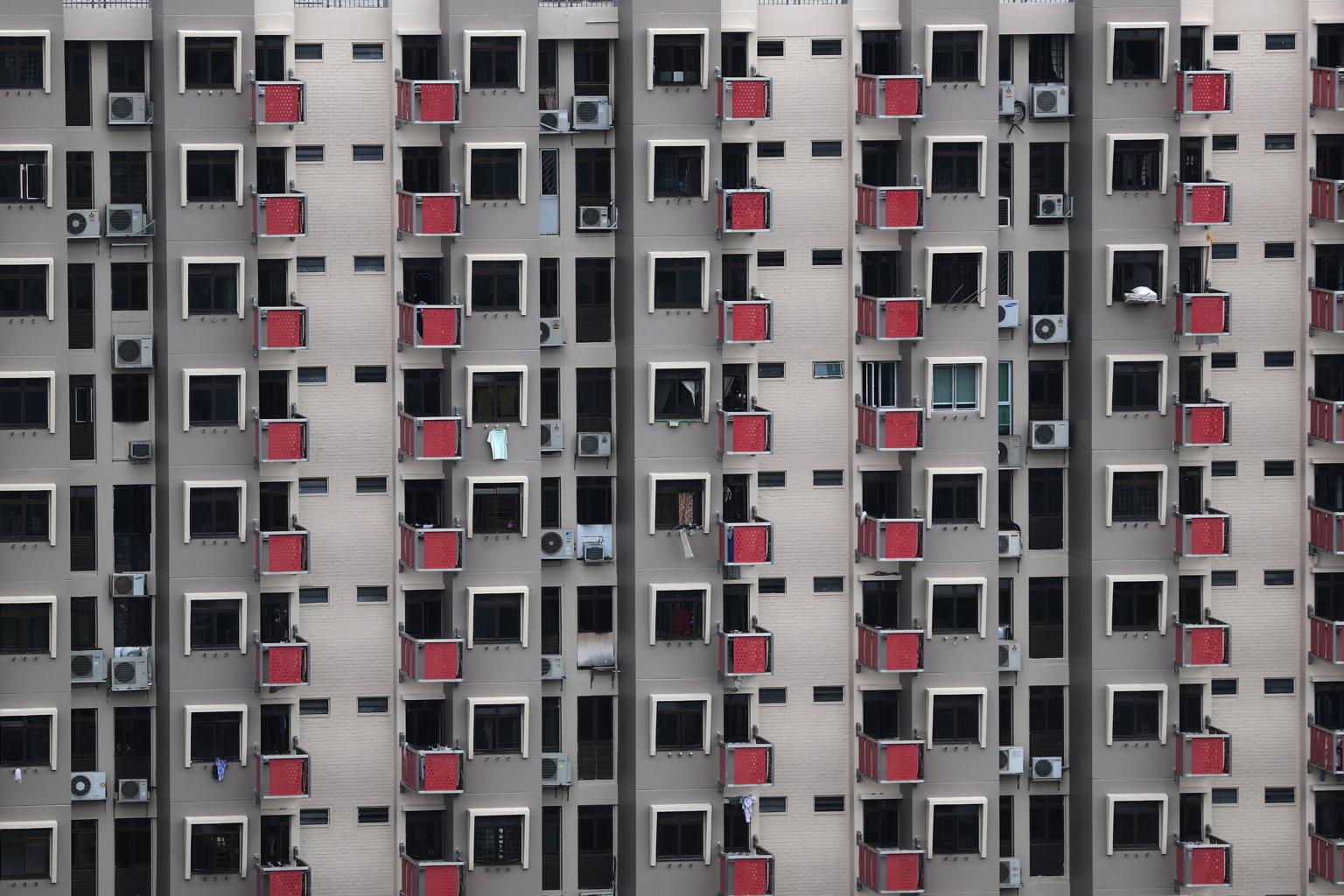Parliament: Emissions from air-conditioning contribute 'sizeable' amount to buildings and household emissions
Sign up now: Get ST's newsletters delivered to your inbox

Emissions from cooling buildings and homes make up a "sizeable" proportion of this sector's total emissions, said Senior Minister of State for the Environment and Water Resources Amy Khor.
PHOTO: ST FILE
SINGAPORE - Global warming may be causing temperatures to climb, but turning on the air-conditioner to escape the heat could be making things worse.
Emissions from cooling buildings and homes make up a "sizeable" proportion of this sector's total emissions, Senior Minister of State for the Environment and Water Resources Amy Khor said in Parliament on Monday (Nov 4).
Singapore generated 52.5 million tonnes of emissions in 2017.
The buildings and household sectors contributed around 19 per cent to this, making it the second-highest source of emissions in Singapore after the industrial sector, which contributes about 60 per cent to total emissions.
Of the 19 per cent, "a sizeable portion would have been for air-conditioning". said Dr Khor.
She was responding to Mr Ong Teng Koon (Marsiling-Yew Tee GRC) and Workers' Party Non-Constituency MP Leon Perera on the breakdown of Singapore's emissions and the efforts the country was undertaking to reduce them.
The land transport sector contributed around 14 per cent of Singapore's total emissions, and the incineration of municipal solid waste at waste-to-energy plants contributed around 3 per cent, Dr Khor added.
Reducing emissions
Singapore is committed to reducing its emissions across all sectors, she said.
To reduce industrial emissions, for instance, Singapore had implemented a carbon tax, which came into effect this year, she said.
On reducing emissions from buildings, she said all new buildings, as well as those undergoing major retrofitting, are required to achieve a minimum sustainability standard under Building Control Regulations.
The Building and Construction Authority's Green Mark Scheme also encourages building owners and developers to achieve higher energy efficiency, such as by reducing a building's cooling demand and adopting more efficient cooling systems, she said.
On helping households make more environmentally friendly choices, Dr Khor pointed to two schemes by the National Environment Agency (NEA).
The Mandatory Energy Labelling Scheme - which uses a tick system to denote greener options - will encourage consumers to purchase more energy-efficient household air-cons, she said. Under this scheme, five-tick air cons are the most efficient.
The NEA has also introduced the Minimum Energy Performance Standards to phase out less-efficient appliances from the market, she added.
There are also efforts to reduce emissions from the land transport sector, she said.
For example, Singapore aims to make public transport the preferred mode of travel in Singapore.
"By 2040, we target for nine in 10 peak period journeys to be taken using public, active and shared modes of transport, and for these journeys to be completed within 45 minutes," she said, adding that Singapore has already capped the vehicle population here at zero growth, except for commercial vehicles.
Emissions from international aviation and marine bunker fuels sector are not included in Singapore's calculations of its emissions.
To reduce emissions from waste incineration, Dr Khor pointed to the recently launched Zero Waste Masterplan, which highlighted the need for the Republic to step up efforts to practice the three Rs - reduce, reuse and recycle.
She added that the recently passed Resource Sustainability Act will further provide regulatory teeth to the managing of electrical and electronic waste, packaging waste including plastics, and food waste.
She said: "These measures will contribute not only to reducing carbon emissions and closing the resource loop for these key waste streams, but will also extend the lifespan of our only landfill at Semakau."
Dr Khor also urged individuals to do their part in Singapore's efforts to reduce emissions.
"We can all choose to make climate-friendly choices and adopt a more sustainable lifestyle, such as setting the air-conditioner temperature at 25 deg C, practising the 3Rs, and taking public transport."
Regional investments
Dr Khor on Monday also said the Ministry of the Environment and Water Resources will work closely with the financial industry to develop Singapore's competitive edge in renewable energy and green financing.
She was responding to Mr Saktiandi Supaat (Bishan-Toa Payoh GRC), who asked about Singapore's role in the construction of new coal and gas plants in the region.
The burning of fossil fuels, such as coal and natural gas, produce greenhouse gases like carbon dioxide. These gases trap heat on the planet, causing climate change.
Financial institutions like banks have come under increasing global pressure to stop financing such projects, amid growing global awareness on how fossil fuels are contributing to climate change.
Dr Khor noted that regional investments were commercial decisions that businesses and financial institutions make to maximise their long-term risk-adjusted returns.
However, there has been a shift away from traditional fossil fuel projects to more sustainable ones, such as those involving cleaner renewables, with businesses placing increasing focus on environmental, social and governance (ESG) considerations, she said.
"In April this year, our three local banks announced their decisions to cease financing of new coal-fired power plants," Dr Khor said.
She was referring to DBS Bank, OCBC Bank and United Overseas Bank.
Dr Khor added that her ministry is working with the Monetary Authority of Singapore to promote the broader green financing initiative in Singapore.


